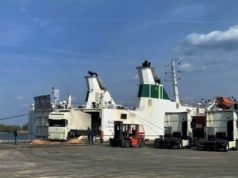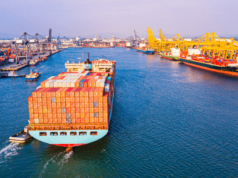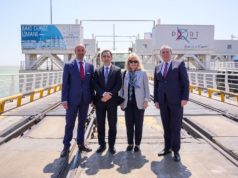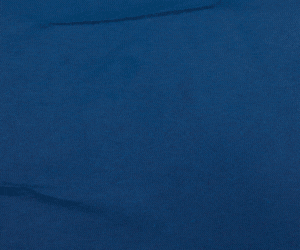AZERTAC An interview with Managing Director of Policy and Strategy of International Association of Ports and Harbours (IAPH) Patrick Verhoeven, who is in Baku.
– What is the purpose of your visit?
My aim is to come and discuss with my colleagues of the Port of Baku the organization of our annual conference which will be held in May next year here in Baku.
– First impression of the city?
Very dynamic city, a lot bigger that I’ve expected. 3 mln people which is a lot. The country I’ve came from is small, Belgium. Our biggest city is one mln people so for me is a quiet big town. Also the diversity and the different influences you have here in Baku.
– Have you already been to the port, got acquainted?
I saw the office and the works for the 1st phase expansion and I understand that by the time that we will come here for the conference that 1st phase will be operational. Quite impressive.
– How do you assess the current state of the port?
I think that it is important that this development takes place because what we see in the geopolitical level, of course, new corridors are being developed and are maritime related but also railway related and China pushing all this with One belt-one road strategy. Baku historically has been the part of old silk route and it’s very good that the investments are taking place now here to make sure that Baku stays an important transshipment place at the new belt and road strategy.
– A free trade zone is created on the territory of the port. Do you think this will contribute to the development of the port?
If you want to be competitive as a port or as a city or as a region having good infrastructure is one thing but you also need to have stable fiscal and legal framework and financial. About the FTZ I don’t know all the details and how it would be planed but to investors keeps the right signal of stability and a very good attractive legal framework because there is a lot of competition around not only in this region but in other parts of the world. You have to look at various criteria: infrastructure, accessibility good legal climate, fiscal climate, financial incentive all that makes the package interesting for investors.
– You mentioned the concept of One Belt-One Road, within this project the Trans-Caspian International Transport Corridor is being implemented, how do you see the prospects of this corridor?
It is a bit difficult to see what belt and road and related infrastructure strategy going to do it might have an impact on the traditional East-West transportation routes which are predominately maritime and almost all the cargo is coming from the East, is coming from China to Europe or to US is coming by the sea mostly this will be a partly land corridor and with the maritime dimension. I think it is a little bit early to see what is going to be the impact, we will see a lot of traffic moving away from the traditional maritime, let’s say deep sea route to partially land based route. I think it is early to see what the implications there it will be.
– By technical parameters, what place can you give to our port?
I’m not a technician, so I cannot tell from the technical point of view. I’m not an engineer. But I can tell from the strategic point of view. That is important what I understood from the presentation yesterday is that you are trying to look at various types of cargo and also you are trying to develop the passenger dimension which is very important. And not technical but strategic point of view it’ is very important that the initial investments are done by the state government that you on your initial stage are not depending from the foreign capital or foreign investment. And the second stage that could be useful to keep your strategic asset under your own control that is for me very important thing, certain in the one belt-one road strategy is the key issue.
– Azerbaijan set as its goal that Baku should become a transport hub in the region. How do you think the port will be able to contribute to this goal?
Yes I think so. As I said before it is difficult to predict where belt and road is going: what type of cargo is going to come but it is always a chicken and an egg situation. What comes first? Carefully face the approach what we are going through the 3 phase and that is very sensible approach. And as I said that the initial investment is done by yourself. I assume in close dialogs with customers that you can plan for the future and see how this project will develop. What I’ve seen it is very promising.
– How is the preparation for the conference? What kind of meetings did you have?
A lot has been done already, in terms of logistics for the conference. Port of Baku works with Pasha Travel as the event organizer. But I’m here today to talk more about the content of the program and we already agreed that the focus will be on the connectivity of connecting hubs of emerging corridors. Тhere is a lot of discussion on infrastructure but there are other dimensions as well, because on this corridors you unite not only cargo, you unite people as well. And how we enhance international cooperation along these corridors that is another dimension. Plus, what we talked about the FTZ, fiscal regime, competitiveness of hubs, that will be a major topic as well. And at the end how it is all standible from the environmental point of view and what can we do with these corridors. There are two or three dimensions all linked to this connectivity topic which will form the program of the conference.
– How do you assess the training that Azerbaijan has already implemented?
I’m in this job four weeks now. I’ve been running before the European Sea Port organization for more than 10 years. Every year we organized conferences like this. So I have experience in preparing and managing and working with the local host and ports all over Europe from Rotterdam, Varna, Hamburg, Marseille etc. Very professional






